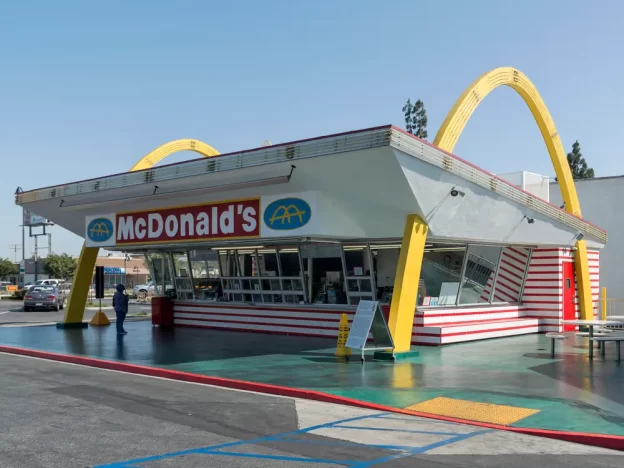- Case Study: Harper’s Dilemma: Harper, a 28-year-old at TechBlitz Inc., feels her ideas are dismissed by her supervisor, David. Despite her effort and creativity, David often micromanages her and provides limited, mostly negative feedback. The team environment lacks collaboration, leaving Harper feeling undervalued and isolated.
- What do you think is the most demotivating part of Harper’s job? The constant dismissal of her ideas, combined with micromanagement and mainly negative feedback, makes Harper feel undervalued and isolated.
- If you were an HR manager meeting with David, what advice would you give? I’d advise David to recognize Harper’s contributions, encourage open communication, and offer constructive feedback. Reducing micromanagement and promoting team collaboration would also help re-engage Harper.
- What would be the downside of losing Harper as an employee? TechBlitz would lose a dedicated, creative employee, sending a negative signal to the team about company culture. Hiring and training a replacement would be costly, and the company’s reputation might suffer in the talent market.
Author Archives: Amr Taha

THE FOUNDER
What makes Ray Kroc and the brothers different from each other?
Ray Kroc and the McDonald’s brothers differ in their visions for the restaurant business. The brothers, Dick and Mac, had a focus on quality, simplicity, and maintaining the essence of their original concept. On the other hand, Ray Kroc was more ambitious and driven by expansion and profit. He saw the potential to turn McDonald’s into a global franchise, leading to priorities clash.
Do you think the McDonald’s brothers did the right thing by selling out to Ray Kroc? Did Ray Kroc give the brothers a good deal?
The decision of the McDonald’s brothers to sell the franchise rights to Ray Kroc was complex. They were focused on their initial vision of providing quality food and maintaining control, but they faced challenges in expanding. Ray Kroc’s deal allowed them to grow faster, but he later renegotiated terms in his favor, leading to some regrets. Whether it was the right decision depends on how one weighs financial success against maintaining creative control.
How did the local store franchisees make money?
Local store franchisees made money by paying a percentage of their sales to the McDonald’s Corporation. In return, they got to use the brand, and receive support in terms of advertising, training, and access to the proven business model. They were responsible for running the day-to-day operations and ensuring the quality of food and service.
How did Kroc make money? How was that different from the franchisees, running the local stores?
Ray Kroc made money by purchasing the land on which the franchise stores were built and then leasing it to the franchisees. He also made money from the franchise fees and royalties paid by the local store owners. His income was more passive, tied to the overall success of the franchise system, whereas the local store franchisees’ income depended on their individual store’s sales performance.
Does this film change your view of McDonald’s?
This film sheds light on the complex history of McDonald’s and how it evolved from a small-scale operation to a global giant. It showcases the sacrifices, challenges, and ethical dilemmas involved in the process. While it doesn’t completely change my view of McDonald’s as a fast-food chain, it does make me think more critically about the business aspects behind it and the individuals who contributed to its growth.
The Founder
1-What makes Ray Kroc and the brothers different from each other: Ray Kroc and the McDonald brothers had differing visions and values. The brothers were more focused on quality, consistency, and the integrity of their original vision. They wanted to ensure that each customer got the best experience. On the other hand, Kroc was more ambitious and saw the big potential for scalability and expansion. He was driven by the big picture, even if it meant compromising on the core principles the brothers held.
2-Did Ray Kroc give the brothers a good deal? In the context of their vision and values, the McDonald brothers might have thought they were preserving their brand’s integrity by selling out to Kroc. However, in hindsight, they might not have gotten the best deal, especially considering the empire McDonald’s would become.
3-local Store Franchisees’ Earnings: The local store franchisees made money from the daily operations of their respective outlets. They earned from the sales of food items while commenting on the quality and processes set by the main company.
4-Kroc’s Earnings: Ray Kroc’s brilliance was realizing that the real money wasn’t just in selling burgers but in owning the real estate on which the franchises were built. He made a significant amount from leasing the lands to franchisees.
5- The movie: of course provides a new perspective on McDonald’s. While I always saw it as just another fast-food chain, understanding its history, the visionaries behind it, and the sacrifices made makes me appreciate the brand more. However, the corporate negotiation and betrayals also shed light on the dark side of the business expansion. It’s a reminder that behind every major brand, there’s a story of ambition, dreams, conflicts, and choices.
Ethics Writing Assignment
Apple, a company I interact with daily, is noteworthy for its efforts in sustainability and social responsibility. They are committed to environmental sustainability, a testament to which is their use of 100% renewable energy for corporate facilities. This is part of their broader initiative to reach net-zero climate impact across their business by 2030, a goal that highlights their commitment to energy conservation and reducing their carbon footprint.
In terms of social responsibility, Apple has a Supplier Code of Conduct to uphold workers’ rights and fair treatment in their supply chain. Their commitment to this code of conduct shows their efforts in ensuring ethically produced products.
In order to improve its ethical practices, Apple could consider increasing the lifespan of its products and providing better support for older models. This would contribute further to sustainability by reducing electronic waste. Additionally, reinforcing their Supplier Code of Conduct could ensure that workers are consistently treated fairly and justly. Regular third-party audits could improve transparency and ensure the adherence of suppliers to the code.
These suggestions would help Apple further its goals of ethical business practices, social responsibility, and sustainability, solidifying its position as a leading innovator that values not just technological advancement, but also a healthier planet and just working conditions.

Amr Taha
Hey everyone,
I'm Amr Taha, from Egypt, currently living in Queens. I'm studying digital marketing and love playing soccer in my free time. Excited to be part of this class and looking forward to collaborating with all of you.
My BMCC email is: amr.taha001@stu.bmcc.cuny.edu